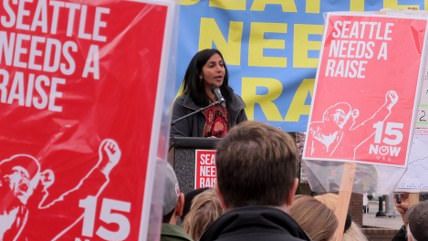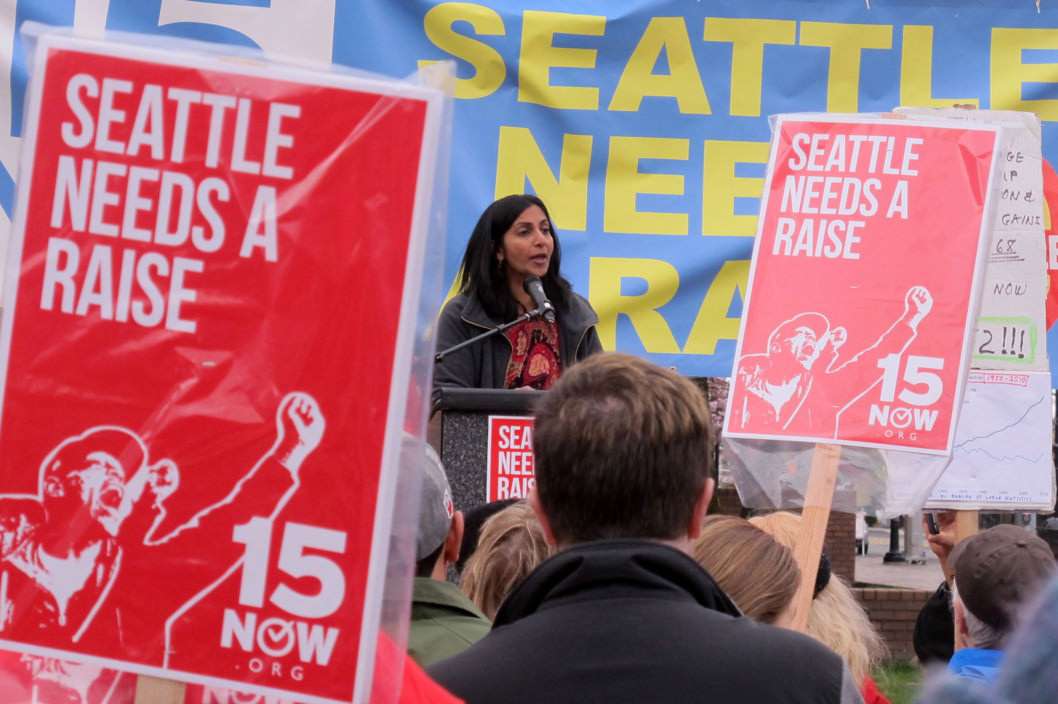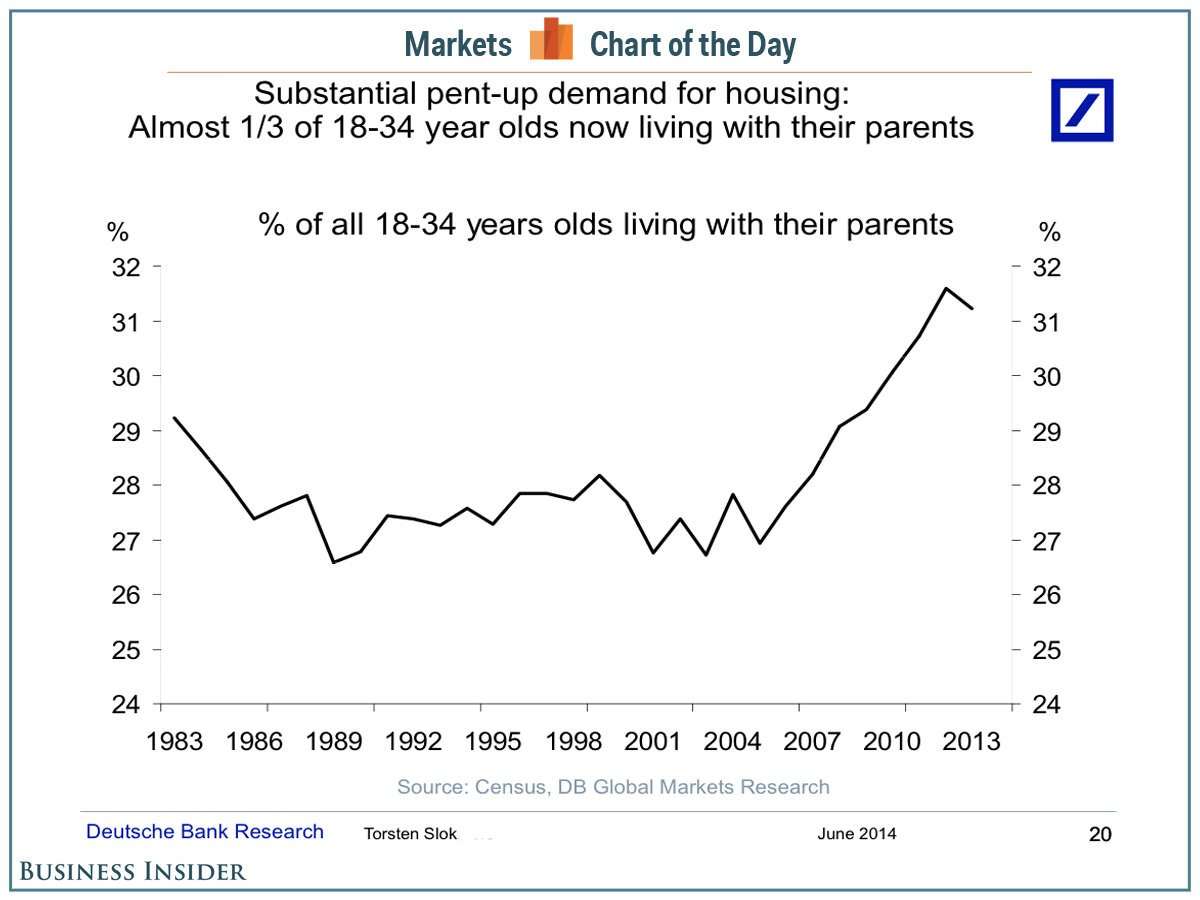Seattle Prepares for Robot Revolution by Setting $15 Minimum Wage


Our labor participation rate is terrible and our economy shrank by 1 percent in the first quarter of the year. So it's the perfect time to raise the minimum wage to a degree unseen in America before, right?
That's what Seattle has done. Yesterday the Seattle City Council unanimously voted to raise the city's minimum wage to $15 over the next seven years. Labor activists are actually considering forcing a public vote to speed up the process so that it hits the new minimum in three years. The city recently elected its first Socialist council member, Kshama Sawant, so perhaps the move shouldn't have come as a surprise. The City Council dulled the edge of the new minimum a bit by allowing for a lower training wage for teenagers and disabled workers. This prompted outrage from Sawant and labor supporters, who I guess want to drive teens and the disabled out of the job market entirely.
Franchise owners are planning a lawsuit because the law counts them as big businesses and only gives them three years to phase in the increase. From The Seattle Times:
Local franchisee David Jones, who owns two Subway stores in Seattle, puts his cost of a $15 minimum at $125,000 annually. He pays the stores' 18 employees $10.50 an hour, on average; he figures he'll have to raise sandwich prices by a dollar or more to maintain profits.
"I'm going to increase prices and work hard to provide the best service possible so that I don't lose sales," he said, noting that his nonfranchise competitors will have four more years to phase in the increase. "The playing field is not even."
Seattle is at about the middle of the pack in metropolitan area unemployment rates—4.8 percent in April. There's also already some information about how a $15 minimum wage may affect the area. Voters set a minimum wage for jobs at hotels and parking garages serving the Seattle-Tacoma International Airport to $15 last fall. The change went into effect with the new year. The Seattle Times looked at some of the impact in February. While acknowledging that it's still too soon to truly evaluate the consequences, the paper noted some price increases and "casualties":
The 215-room Clarion Hotel closed its full-service restaurant in December, laying off 15 people, said general manager Perry Wall. The hotel also let go a night desk clerk and maintenance employee and is considering a 10 percent increase in room rates for the spring travel season, Wall said.
He estimates that without a reduction in head count, the hotel's annual payroll costs would have increased $300,000. It still employs about 30 people for jobs Wall describes as more in-demand than ever.
"I just think unskilled workers are going to have a harder time finding jobs," he said. "You're going to have people from as far away as Bellevue or Tacoma wanting these jobs, and they're going to come with skills and experience. For $15 an hour, they'll go that extra distance."
Blog United Liberty tracked down some interesting comments from workers at the blog for Northwest Asian Weekly. They found a couple of workers who were affected by the new wages. Things didn't quite turn out as planned:
"Are you happy with the $15 wage?" I asked the full-time cleaning lady.
"It sounds good, but it's not good," the woman said.
"Why?" I asked.
"I lost my 401k, health insurance, paid holiday, and vacation," she responded. "No more free food," she added.
The hotel used to feed her. Now, she has to bring her own food. Also, no overtime, she said. She used to work extra hours and received overtime pay.
What else? I asked.
"I have to pay for parking," she said.
Several business leaders in Seattle's Asian community submitted a commentary to the weekly warning about the terrible impact of the wage increase on immigrants and minority-owned small businesses. Read it here.
And here's a chart showing how many adults between the ages of 18 and 34 who are living with their parents. Anybody remember how they used to make such a big deal of this number when Gen-Xers were first entering the job market? Take a look at the difference now:



Show Comments (445)